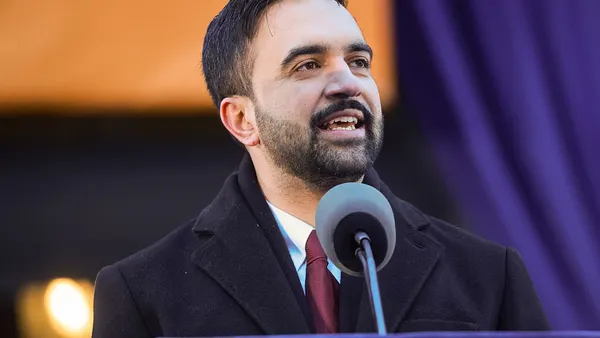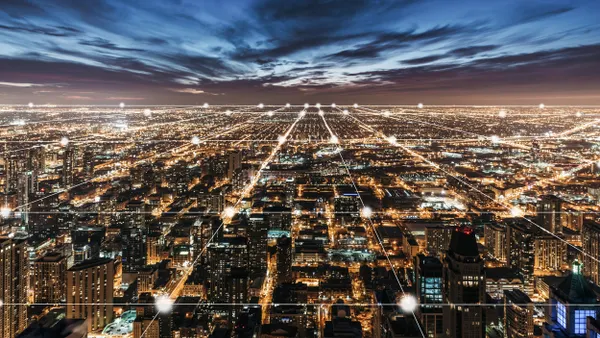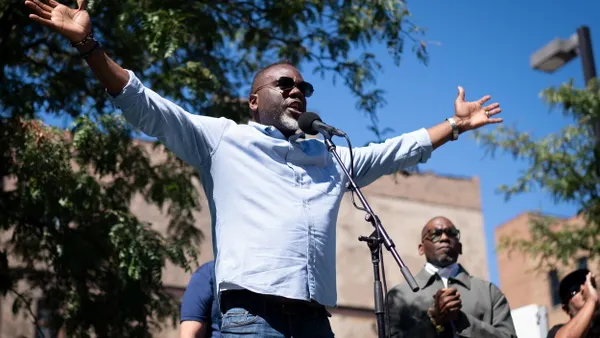Dive Brief:
- Citizen, a controversial app that provides real-time alerts on nearby crimes and emergencies, is expanding to Baltimore, according to the Baltimore Sun and others. It will be the app’s third launch city, after New York City and San Francisco.
- Citizen collects publicly-available information, such as police scanner footage or emergency alerts, and sends it to users based on location, along with live video in some instances. A team of people with law enforcement or journalism experience reviews the information and writes the alerts.
- Although backers say the app is a way to keep people safe and out of harm’s way, critics have said it could encourage people to intervene (it was initially branded as “Vigilante”). There have also been concerns about user privacy, since it relies on location data.
Dive Insight:
Citizen’s foray into Baltimore seems to be a natural fit. Not only does the city have the highest per-capita homicide rate of big cities, but founder and CEO Andrew Frame says he has connections to the city, including investor Ben Jealous, the former NAACP president who ran for Maryland governor in 2018. In an interview with the Baltimore Sun, Frame said he wanted to bring the app “to cities and people who need this the most.”
City officials are still evaluating the app, although Baltimore Police Department spokesman Matt Jablow told the outlet, “In theory, it sounds like it could be of real use to Baltimore residents,” similar to the way neighbors use the Nextdoor app to share information. Citizen also says it can relay information to residents within minutes to keep them out of harm’s way.
Under its initial “Vigilante” branding, Citizen was kicked off the Apple app store, and critics have said it effectively adds more surveillance to some neighborhoods. The app allows users to take live video and add information to an ongoing situation once Citizens’ analysts have created a report, potentially encouraging them to remain on the scene.
It fits into a broader debate about the role of technology and surveillance in public safety. Cities have adopted audio monitoring tools such as ShotSpotter that can detect gunshots (Denver recently expanded its ShotSpotter network), despite concerns that it could be used to listen in on citizens.
And Amazon has marketed a controversial facial recognition software to public safety departments amid criticisms that it could disproportionately impact people of color. Although police departments have said that new technology can help them lower crime rates and increase safety, it’s clear that any new venture — Citizen included — has to tread a careful line to acceptance.









